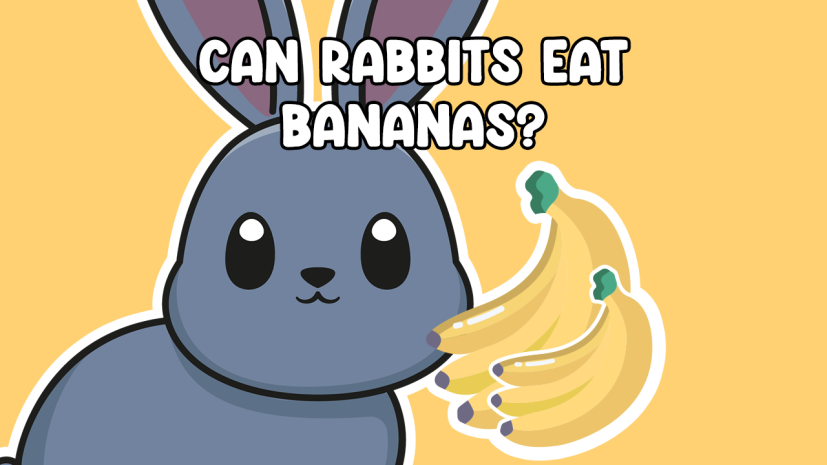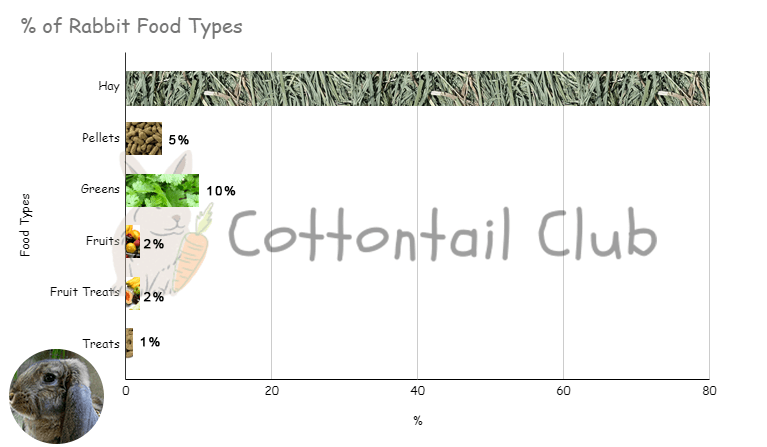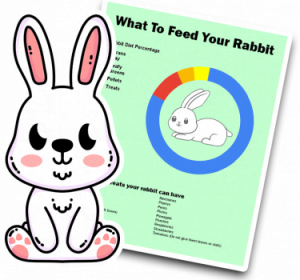
Rabbits require fresh vegetables and fruit as part of a balanced diet. However, it’s very easy to overindulge when you’re as small as a rabbit, and doing so can have some devastating effects simply overnight. So that begs the question, are rabbits allowed bananas?
Rabbits are herbivores, and their diet mainly consists of hay, fresh vegetables, and a limited amount of fruits.
While fruits should be given as treats in moderation, they can provide additional nutrients and variety to a rabbit’s diet. However, not all fruits suit rabbits; some may harm their health.
Like other fruits, rabbits can eat Bananas with and without peel in moderation. This is due to their extremely high sugar content. You should only feed your rabbit 1 – 2 tablespoons of bananas every other day. Not doing so will result in obesity and diarrhea, which can cause dehydration.
Yes! Almost all rabbits extremely love bananas. Some prefer just the insides. Some love eating the peel as well. Each rabbit is different, but what’s commonly known is that a rabbit will hunt down anyone for a bite of their banana.

In general, it is not recommended to feed banana peels to rabbits. While rabbits might show interest in chewing on the peels, they may struggle to digest them properly.
If your rabbit is particularly sensitive to GI Stasis, we suggest avoiding banana peel. The tough texture and high fiber content of banana peels can lead to gastrointestinal issues like indigestion, bloating, or intestinal blockages.
If you’re concerned about your rabbit sugar intake, consider giving them just the peel, roughly 30% fiber, and 60% carbohydrates. While carbohydrates aren’t good for your rabbit in large quantities, fiber is crucial to their diet. However, the difference between the peel and inside contents isn’t different.
You should give your rabbit two tablespoons of bananas per five pounds of body weight. But this means no other fruit can be eaten during this time period.
Banana is exceptionally high in sugar content. You should only give your rabbit two tablespoons of banana every few days. This can be increased if you have a giant rabbit, but it’s probably best to mix it with other fruits.
If your rabbit hasn’t had a banana before, it’s best to give them a small portion, to begin with, whilst monitoring their stools and behavior to avoid a chance of GI Stasis.
Bananas are a popular fruit that most enjoy due to their sweet taste and numerous health benefits. However, what about rabbits? Let’s take a closer look at the nutritional value of bananas and how they relate to a rabbit’s dietary needs.
| Nutrient | Amount per 100g |
|---|---|
| Calories | 96 |
| Carbohydrates | 23.9g |
| Fiber | 2.6g |
| Sugar | 17.2g |
| Protein | 1.1g |
| Fat | 0.3g |
| Potassium | 358mg |
| Vitamin C | 8.7mg |
| Vitamin B6 | 0.4mg |
| Magnesium | 27mg |
Banana peels contain various nutrients that can benefit humans, such as dietary fiber, potassium, and vitamin B6. However, when it comes to rabbits, their nutritional needs differ significantly.

No, Banana is exceptionally high in sugar content and Carbohydrates. Giving your rabbit constant portions of Bananas will only result in Diarrhea, GI Stasis, and Obesity. You should give your rabbit two tablespoons per five pounds of body weight at most.
| Age of Rabbit | Amount of Banana |
|---|---|
| Baby Rabbits | None. |
| Juvenile/Teen Rabbits | None. |
| Adult rabbits | 1-2 tablespoons of banana every 2 days |
| Calories | 89 |
| Carbohydrates | 23g |
| Fiber | 2.6g |
| Protein | 1.1g |
| Fat | 0.3g |

Baby Rabbits have a different dietary pallet than their parents or older siblings. As such, you should NOT give your rabbit any Fruit or Vegetables until 6 Months.
At six months at least, your rabbit should slowly be introduced to eating vegetables and fruits, but portions of Bananas should be kept extremely small, and even the size of the slices.
Remember, each rabbit has a different sensitivity to foods, and with an animal this fragile, it’s better to be safer than sorry.
Yes, rabbits can technically eat plantain bananas. Plantains are a variety of bananas that are less sweet and more starchy compared to regular bananas.
Plantain bananas are less sweet and contain higher levels of starch compared to regular bananas. This difference in sugar content can make plantain bananas a potentially better option for rabbits, as excessive sugar intake can lead to health issues such as digestive problems and obesity.
By offering plantain bananas with lower sugar content, you can reduce the risk of such problems while still providing a treat for your rabbit.
The nutrient levels in both types of bananas are generally beneficial for rabbits when offered in moderation.
Bunnies can eat dried bananas, but you should offer them in moderation. Dried bananas are a more concentrated form of fruit, meaning they have a higher sugar content than fresh bananas. Excessive sugar intake can lead to digestive issues and obesity in rabbits.
Yes, bunnies can eat frozen bananas, but you will need to take some precautions. Frozen bananas can be a refreshing and tasty treat for rabbits, especially during hot weather.
When feeding frozen bananas to your bunny, it’s crucial to ensure that the bananas are fully ripe before freezing them. Ripe bananas are softer and easier to chew and digest. Before freezing, peel the bananas and cut them into small, bite-sized pieces. You can then place the banana pieces in a freezer-safe container or bag and freeze them until solid.

By entering your email address you agree to receive emails from Cottontailclub. We'll respect your privacy and you can unsubscribe at any time.